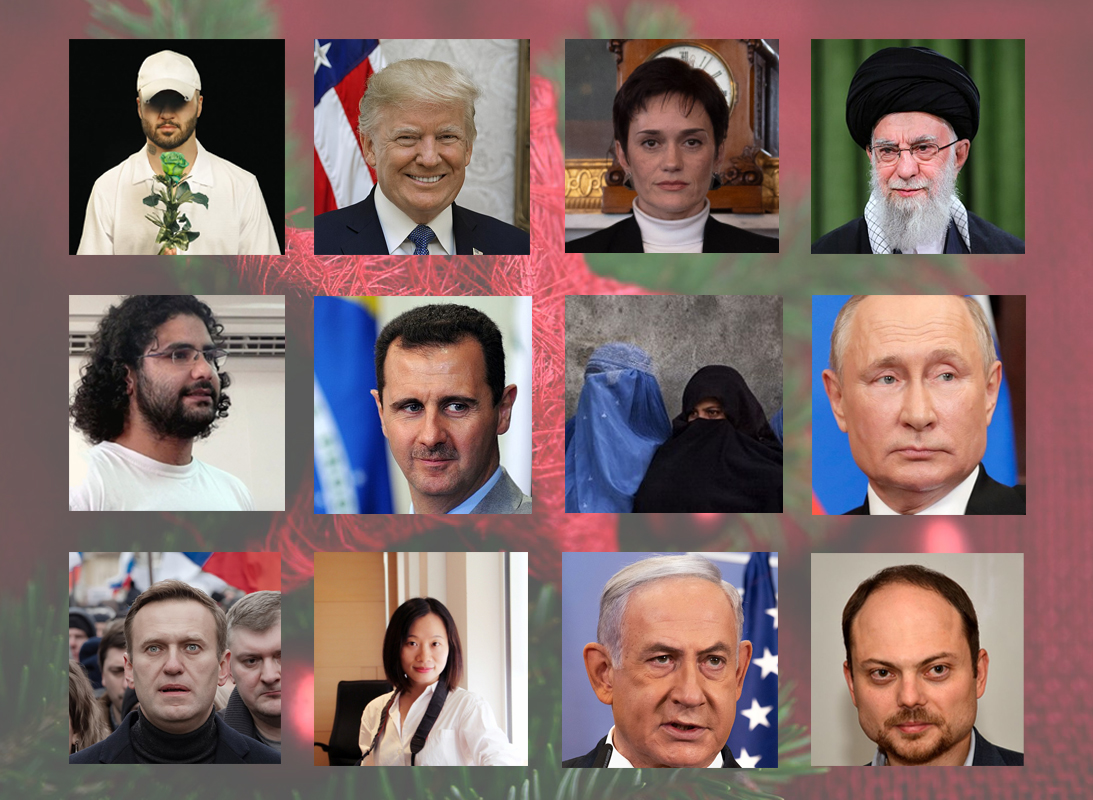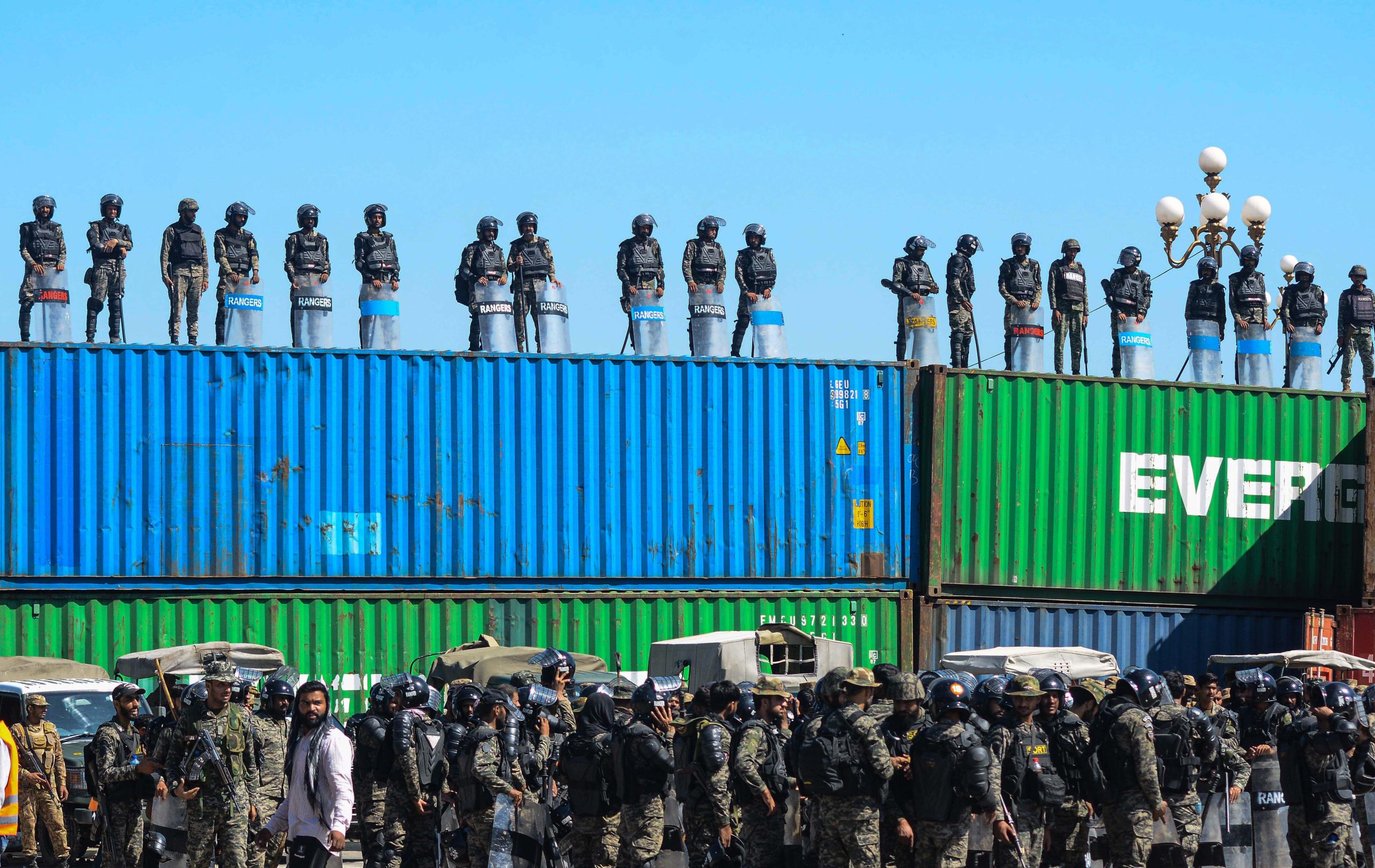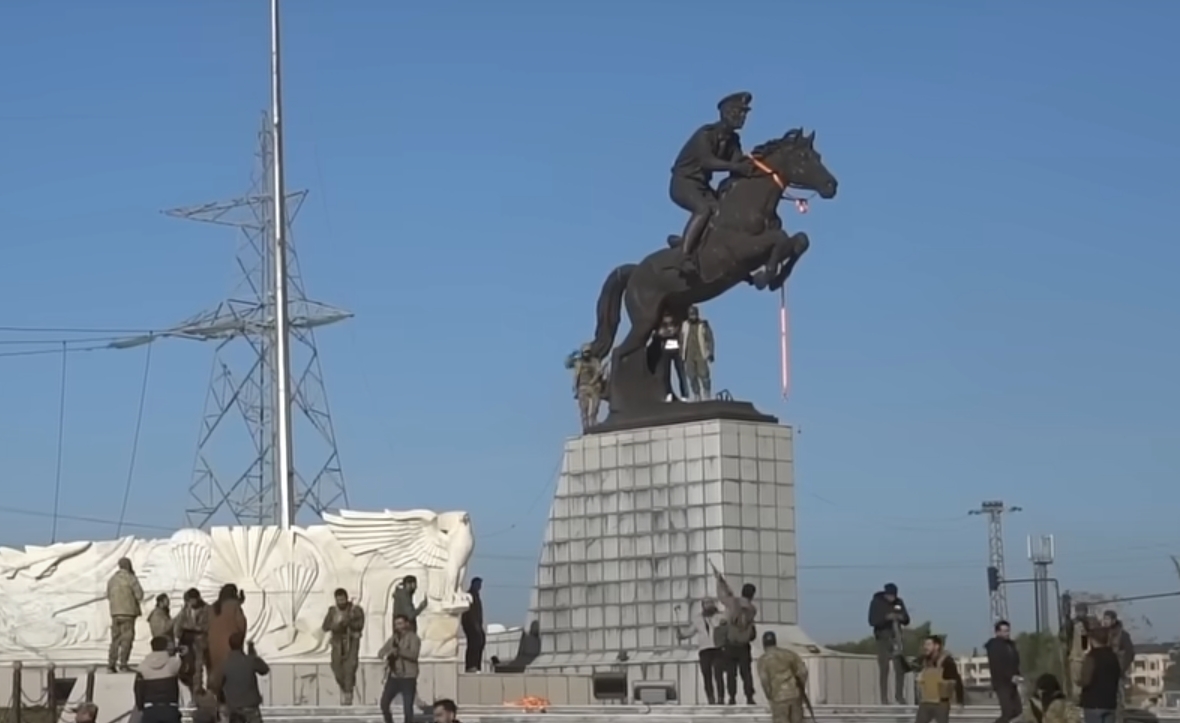We are going to Moscow on Thursday evening. There are a few meetings arranged there. I could have gone at the very beginning of the week but was absolutely overloaded with the usual work in the office.
Stas [Stanislaw Mikhailovich] is thinking about whether to stay in Moscow through until Saturday to take part in the March of the Discontented. He is worried his participation might complicate his situation. He was detained in Gorky Square in Nizhny Novgorod during the March of March 24. They didn’t open a case into his alleged breach of the administrative law, for some reason. At the same time I feel that he has already made his choice and is morally ready to go further on. He demands that I leave Moscow on Friday evening. He feels that I will be of more help staying in Nizhny. I understand that his concerns about my safety are the only background of all this reasoning. OMON [the internal affairs ministry militia] in Nizhny demonstrated their readiness to follow whatever order they received.
We are taking the midnight train to Moscow. Our carriage is the last one. Some groups of passengers are shifting from one foot to another. Passing them, I recognize two familiar faces of the UBOP (special department on combating organized crime) servicemen. There is tension in the air as they watch us while we walk. Their chief, Maxim Bedyrev, rushes to us, saying:
‘Stanislaw, we would like to talk to you…’
‘What’s the reason? Any warrant?’
‘No, just let’s go aside and have a word.’
‘I don’t want to.’
We keep wrangling for a few minutes. Never forget to refer to Article 51 of the constitution: we have the right to remain silent. It’s clear that if we submit, the train will leave without us. Maxim squints at us. It is evident that he is furious and trying hard to hold his feelings.
‘Are you so sure that no accident will happen in your homes while you are away?’
‘Absolutely.’
‘You should not be that sure. What if you have failed to switch off an iron?’
We can’t wait any longer – the train is leaving. As we get on, we hear Bedyrev call ‘Stanislaw Mikhailovich, are you aware what will happen if you dare to go to Pushkin Square on Saturday?’
***
We arrive at Kursky station, Moscow, at 6 am on Friday. As we are getting off the train, three policemen enter our carriage. One of them introduces himself and demands our documents. We are asked to follow them to the police station.
The office is full of policemen. One detained man is looking at us through the bars of the cage. Another detainee is sweeping the floor of the police office. When they hear that we work with the Nizhny Novgorod Foundation for Promoting Tolerance, they inquire what we mean by the word ‘tolerance’. The policemen treat us in a much more polite way after I receive a call from journalists from the Echo of Moscow radio station. I tell them, ‘Guys, you are in the news.’ While I am commenting on our problem in a live interview, a young investigator is filling in his report asking Stas the usual questions about any criminal convictions. He confirms the conviction he received for incitement to racial hatred after publishing an article by Chechen separatist Aslan Maskhadov.
They are evidently puzzled after our comprehensive explanation of what tolerance is.
‘And what? Are people already taken to jails for publishing Maskhadov in our country?’
I am amazed by the simplicity of his reaction. Maskhadov is not a notorious ‘terrorist’ in the perception of this particular police lieutenant. Our conversation is just friendly after that. We are told that we will be released in just five minutes. The policemen drop a few sarcastic remarks about their colleagues from Nizhny Novgorod and we leave.
***
10 am on Saturday morning. I am going to my friends’ office to drop my backpack there. I still hope that I will manage to leave Moscow in the evening. My train ticket to Nizhny Novgorod for the previous night was just wasted.
The first coincidence happens when Stas and I meet activist Marina Litvinovich. She is taking huge heaps of roses out of her car. They are planning to distribute copies of the constitution of the Russian Federation among young people. I get a bunch of roses to distribute among those who join the March. Stas takes some copies of the constitution.
***
11.30. While approaching Pushkin Square, we see huge numbers of OMON and military. I am going along Tverskaya Square with my bunch of roses. Reserved men in plain clothes with wires poking out of their ears are casting suspicious glances at me but don’t try to stop. They must be consulting with their chiefs as their lips keep moving whispering something into receivers. Pushkin Square is blocked off. All the area around the monument to Pushkin is crammed with people in blue uniforms. There are around a thousand of them there. The opposite side of the square is also cordoned off. People start to approach us as they see the roses and take them for some sign.
Just in the middle of Pushkin Square we bump into one of the Dutch journalists who were detained in Nizhny. Remke was beaten in Nizhny Novgorod by the OMON servicemen as he failed to understand how wide they wanted him to spread his legs. He has mended his torn leather overcoat by now. He is not shocked by the sight of numerous military trucks and heavily armed police force after what he observed in Nizhny Novgorod when the protesters were dispersed on March 24. But he is evidently shocked by the minimal response from his own government to the violation of the rights of citizens of the Netherlands at the demo. The so-called political interests and double-dealing diplomacy of political and economical interests is clouding the eyes of European politicians so much that they don’t want to make a notice of the growing danger posed by Putin. Our Dutch friend says, ‘I am just worn out and don’t want to be detained once again.’ But he is in the square now, and nobody knows how the situation is going to develop.
***
11.45 We are trying to find out where our friends are. Marina Litvinovich’s phone answers that we can find her in Tverskaya Street. We head towards her. We overhear two police colonels giving the order: ‘There is a group of about 50 people going towards the Square. Detain them all.’ In a few seconds we see this group. It is being led by Garry Kasparov. We join them trying to distribute the constitutions and roses among the people. The OMON blocks our way. We are standing face to face with them. Kasparov tries to persuade them to let us go on. One of the OMON people is making a nasty remark about Kasparov being a traitor. He calmly responds:
‘You don’t have the right to call me a traitor as when I was your age I was gaining recognition and honour for my country, while you are breaking its main law.’
People start to shout out, ‘Give way!’ We are being supported from behind the chain of the OMON. It is they who are surrounded by people. People are protruding their hands over the hard-helmeted heads of the OMON. Then the slogan changes: ‘Russia without Putin!’ Immediately the OMON chiefs give the order to detain people. We try to escape through the open doors of some cafés and shops. The OMON grab an elderly woman who is clutching a lamppost. She squeals ‘They are killing me’, while three huge men are trying to tear her off the pole. I see Stas being dragged into the bus. He is screaming, ‘Let me go.’ Several men are trying to hold him and he is being dragged in opposite directions. People on the right and on the left of me are just disappearing one by one. The bus is crowded with people. Some OMON servicemen are taking Kasparov from a café.
***
I am looking around trying to calm down. We have to decide what to do next. I recognise a man in a blue windbreaker. It is Andrey Illarionov, a former Putin adviser, now a senior fellow at the Cato Institute in the US.
‘What are you going to do?’
‘We should try to get to Turgenev Square and take people from here.’
He is right. The authorized rally is going to start in under an hour in Turgenev Square. It is absolutely pointless to wait in Tverskaya Street until we are also loaded onto the buses.
We are going down the underground path. There are some journalists who recognize Illarionov. The flashes of their cameras attract people’s attention. When we get out, some 50 people are following us.
Andrey and I are getting close to the police cordon to find out what is going on in the buses with the detained people. I see Kasparov’s face through the broken window of a bus. Some minutes before that a young man broke it from the inside and escaped. Again we come face to face with the OMON. A CNN journalist is interviewing Illarionov. There are instigators in the crowd. One of them is screaming, pointing his finger at Illarionov, ‘What are you waiting for? Kick him with your baton at his head. Don’t beat Russians. Fracture the head of this American vermin. What are you doing here? Aren’t you still in Washington?’ Andrey ignores him. An OMON chief shoulders his way through the crowd. He tries to grab Andrey, but the people don’t let him.
We decide to go to Turgenev Square, taking a route that goes from the office of the Izvestia newspaper in the opposite direction to Pushkin Square. The OMON and the military bosses won’t expect us to take this route. Nastasyinskiy Lane is empty. The way is free. We call our friends, trying to find them and get them to join us. I get a text message from my friend Ilya, ‘I have been detained. We tried to break through the OMON cordon. People say that 1,000 people are marching to the Sadovoye Koltso.’ It is our column Ilya’s heard about.
Banners are unfolded. The red, white and blue banners of the Russian Federation fly over our heads. People shout: ‘Russia without Putin!’; ‘We want other Russia’; ‘No to a police state’. There are no obstacles in our way. We approach a Russian Orthodox church where we see people on the belfry. When we come alongside the church, they start ringing the bells, expressing their support. We feel free and cheered up. Stas calls me from a police station. I tell that the March is making its way. I hear him relaying the news to Kasparov.
As the march reaches Petrovka, 38, the famous address of the criminal police, people start singing, ‘Our proud Varyag is not going to give up’, a song of undefeated Russian sailors from the time of the Russian-Japanese war of 1905. We are also shouting, ‘No to the state with the FSB everywhere.’
In Trubnaya we see several hundred people more. Our two columns flow together.
The OMON chiefs have sent their watchdogs to stop us. They appear from Sretenskiy Avenue. Andrey is next to me. Marina Litvinovich is marching shoulder to shoulder to Ruslan Kutaev, a Chechen businessman and politician who was the co-chair of our Russian-Chechen Friendship Society for the first few years. Andrey is pulling me by a sleeve, telling me it’s time to run. I understand that he wants to pass the narrow street where the OMON is running to before they close their ranks.
We fail and run into the shields of the OMON. Andrey is telling them to let people go on. He keeps repeating, ‘This is our city’. Pointless. He pulls me out of the crowd just at the moment the OMON begin to detain people. We run over the OMON chain and jump over a fence. Many people escape with us. Hundreds of others keep running towards the Sretenskaya Square. Another OMON cordon. This time they are just chasing people as the column has already been dispersed. We see them dragging people, like sacks of flour, into their cars. We see them beating people with their batons.
Two OMON servicemen try to seize a young man who was marching next to us. Andrey and I run up to them and try to talk them into not detaining him. It is useless. They are hunters and the young boy is their prey. One of them is threatening us with his baton. Andrey tries to protect me. Suddenly, I feel an acute pain in my ankle. It is not a baton – it is the heavy boot of a policeman who is kicking my leg. As I limp aside, I see Litvinovich being chased by some other OMON militiamen.
***
Several hundred manage to get to Turgenev Square. The rally is underway. We have to go through the metal detectors. Policemen are searching Illarionov. There are several books in his inner pocket.
‘What are they?’
‘These are very interesting books…. This one is the constitution of the Russian Federation. The other one is the Criminal Code.’
They let us go through. Former Russian prime minister Mikhail Kasyanov is behind us. His face is red. He also had problems getting to the site as the OMON tried to detain him on the way. They failed. Andrey Illarionov refuses to make speeches although he is the person who has become de facto leader. Political satirist Viktor Shenderovich is making a speech. It is difficult to make out how many people have managed to get together here. Not less than 2,000. I am told that Putin has left Moscow for Saint Petersburg.
***
It’s time for the rally to finish. Marina and I decide to go to Presnenskiy police station, where the first detainees have been taken. Stas is among them with Garry Kasparov, and a range of activists, reporters and ordinary protestors.
There is already a crowd in front of the police station. I see Vladimir Ryzhkov, a member of the State Duma whose Republican Party of Russia is likely to be liquidated soon. He tells that some hundred members of the party participated in the rally. He has just seen the detained people. There are two lawyers with them: Karinna Moskalenko and Elena Liptzer. I again meet Andrey Illarionov. He has also come to support the friends. People from the Moscow Helsinki Group and the Demos Center are here. My friend Alik Mnatskanyan calls my cell phone. I see him standing on the steps of the police station. He is working as a journalist taking pictures. Nina Tagankina of the Moscow Helsinki group shows me a torn copy of the constitution. She picked it up in Tverskaya after the dispersal.
‘It would be one of the main exhibits in future. The constitution trampled by the OMON.’
I want to say that human rights defenders should do more than just pick up ‘exhibits’ after the events. But Nina’s eyes are shining with joy and I don’t want to upset her. She is here with all the people. And that’s important.
But time is passing. The prisoners have been detained for more than three hours now. The crowd of people is shouting ‘Freedom to political prisoners.’ We try to express our support, shouting out the names of the detainees. The site is surrounded with five-storey apartment buildings. Their residents are getting out onto their balconies and express their support to us.
The chief of the police station comes out with a megaphone. He is being followed by an OMON lieutenant-colonel. The pale-faced police chief is trying to persuade the crowd to disperse, but his voice is trembling. Andrey approaches him. He is very calm and reserved. He explains that it is better to release all the detained people as their custody has become unlawful. In response, the police chief murmurs, ‘The OMON isn’t following our orders. Somebody else operates them.’
The whole area is surrounded by the OMON again. Huge trucks can be seen on the main road. They don’t let people get past their cordons. Then the violence starts again. OMON beats people, seizes them and drags them to their buses.
We count our ‘casualties’. Eighteen people have been taken away this time.
Stas appears on the staircase. He is standing smoking. Then he comes towards us. Nobody is trying to stop him. The OMON has left and these policemen are sick and tired of the whole thing. He shows us the report on his ‘breach’ of the administrative law. It says: ‘Was detained while shouting out anti-governmental slogans in a big crowd of people.’ However, there are evident breaches in the report. No name and no signature of the person who made the ruling. No time of detention is indicated. This should mean it can be appealed.
We go to Amnesty International’s office. My foot is aching, and it is difficult to walk. I probably need to go to hospital. My friend who works with Amnesty is trying to get the address of the nearest hospital with a trauma surgery office. Failed, failed, failed…. She groans, ‘It is a disaster to fall ill in Russia.’ Yes, it is. At the same time, I’m trying to get the contact details of lawyers, as we keep receiving calls from Marina Litvinovich about violations of rights of many people who have been taken to other police stations. She is still in Novaya Square at the court building, waiting for Kasparov and the rest.
On the way to hospital Friederike is making phone calls to the most troublesome police stations. They respond as some minutes later we begin to receive calls that detainees there have not been so maltreated. It does help as these guys still don’t like international attention. They are dreaming about escaping their reality for good. Certainly, they won’t be able to afford Kurshavel, the resort of choice of the oligarchs.
I talk to Andrey Illarionov on the phone. He is going to be my witness. I really am going to report the trauma of being kicked. It will be pointless but I will do it.
In hospital we are not very welcome. They are evidently not going to provide me with help. I have no registration in Moscow. I have left my Russian passport in the office. I have to beg the doctor. She does me a favour in the long run but it takes me 200 rubles. No fracture, fortunately, but the foot is swollen. As I am leaving, she tells me that I was the 54th patient she’d seen from the demonstration.
When I get to Nizhny and wake up after a half-a-day’s heavy sleep, I turn on TV to learn that Putin has spent the weekend in St Petersburg in the company of Jean Claude Van Damme. Putin in a black shirt, with radiantly-smiling van Damme, is watching no-holds barred fighting. The white marble of Van Damms’s teeth looks even brighter against the background of Putin’s black shirt and pale face.
Oksana Chelysheva is a journalist and an activist for the Nizhny Novgorod Foundation for Promoting Tolerance




